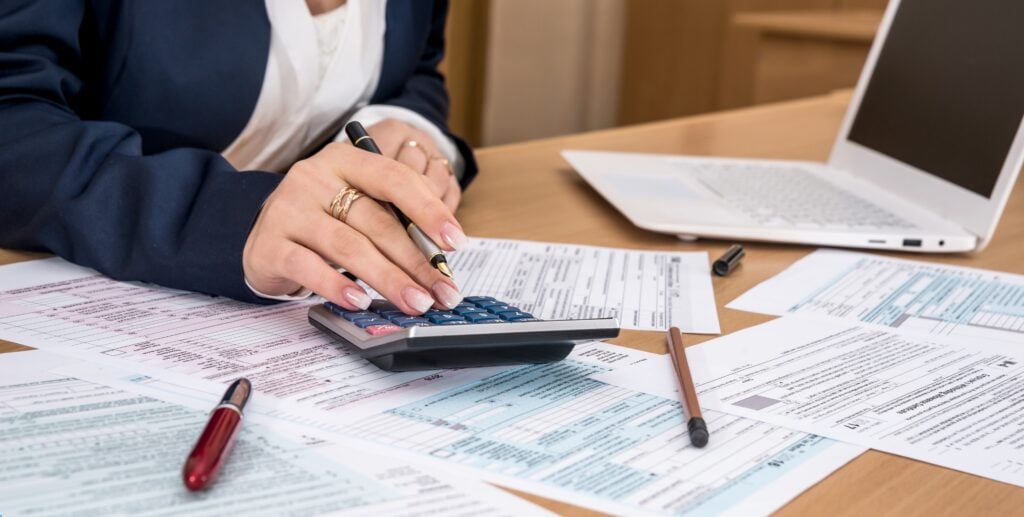Yes, those monthly mortgage payments are good for something besides the obvious: this little thing called equity. Simply put, home equity is cash you can access thanks to those monthly payments you make every month.
Whether you’re looking to renovate an investment property you just purchased or perhaps even pay off some high-interest credit cards, equity can be a powerful tool to help get some quick cash.
Here’s more about what home equity is, how to calculate it, and when you should use it to help further your investment goals.
What Is Home Equity?
The term home equity applies to many different areas of finance. For instance, in real estate, equity is the ownership of a home. However, “equity” can also represent company ownership through stock shares.
You’re building home equity with each mortgage payment you contribute to paying off your home. As the homeowner, you legally own 100% of the home but do not have all its equity value until the mortgage has been paid off.
Why? The lender who issued the mortgage has a lien on the property because the home was used as collateral to issue a loan to you, the homeowner.
However you look at it, home equity is a perfect opportunity for real estate investors to get quick cash for their next investment opportunity.
How to Calculate Home Equity
So how much equity do you have in your home? Let’s look at a scenario from the initial purchase of a property versus five years into ownership.
Initial equity
Did you know that you immediately have equity in a property after closing? That’s because the initial down payment for a property becomes equity as long as the home can realistically sell for what you purchased it for.
So let’s say that at the beginning of a purchase, you put 20% down on a house. That means you officially have 20% equity in the property.
Progressive equity
Let’s walk through a typical example of a homeowner’s equity several years into their mortgage.
Five years ago, Nina bought her first home for $400,000. She put $30,000 down and took out a mortgage for the remaining $370,000 of the purchase price. It’s a 15-year, fixed-rate mortgage at 6% interest. Her amortization schedule shows she still owes the lender around $279,500 on the $400,000 mortgage loan.
Nina spent $35,000 to renovate her kitchen and patio three years ago. As she considers a move to another city for a new job, she has her home appraised. The appraiser lists the home’s value at $441,000, reflecting some price increases in her ZIP code over the past five years and the value she added to the house through the renovations.
So, what is Nina’s current equity in her home? She has accumulated equity in her home from three different sources:
- The initial down payment of $30,000
- The $35,000 in renovations (likely adding more than just $35,000 in value, but $35,000 minimum)
- Local price increases in home values (assume the property appreciates 2% yearly)
To calculate her equity, however, we only need two of the figures listed thus far: the current home value minus the amount still owed to the lender on the outstanding mortgage. Everything else is her equity.
So, we arrive at a home equity value of $161,500, as shown in this formula:
$441,000 – $279,500 = $161,500 equity in the home
What Can I Do With My Home Equity?
Once you have built up some home equity, you can tap it for several things. It’s much simpler if the mortgage has been paid without interruptions since the loan was first issued.
Remember that there are also time restrictions on how soon after a mortgage is issued that a homeowner can refinance or obtain something like a home equity loan or line of credit. The time frame for this is usually anywhere from one to three years.
Save on interest
Taking out equity in your home is a perfect way to help consolidate debt—for example, high-interest loans or credit cards. In the long run, this means more money in an investor’s pocket for future investments.
Let’s say your credit card is at a 25% interest rate. Compared to a home equity loan rate, that’s a lot. So, in cases like this, it makes sense to tap into your home’s equity with a home equity loan to save on interest.
Flip houses
If you find a house that’s stuck in the ‘70s today and are willing to put in the time, work, and money to flip it, usually it comes with a more significant profit margin than an already upgraded investment property. Typically, a flipper property will be at a lower price point because of the needed work.
This means you won’t have to pull out as much home equity as something like a full-blown, updated property. Plus, many home equity loans, lines of credit, or even a cash-out refinance allow for a better interest rate than you would find with a renovation loan.
Join REITs
Want to own investment property, but don’t want to go through the whole purchasing and management process? Consider real estate investment trusts (REITs). REITs allow investors to hold fractional property shares without going through all the additional hoopla.
So pulling out home equity to invest fractionally may be one of the better options if there is not much equity to pull in the first place.
Buy rental property
Like a house flip, an investor can use equity to purchase another investment property, like a rental. If the house needs work, the equity can be used to improve the property, hoping it will help increase rent and the home’s value while producing passive income.
How to Grow Your Home Equity
As time goes on, the market value of your property will change as the market takes new factors into account. For example, the home’s value may rise over time due to market conditions, which means that the homeowner now has more equity.
For property investors, this could mean buying an investment property with equity in an up-and-coming location, renting it out, and watching their property value rise over time while earning passive income.
Here are some of the most popular ways to grow your home equity specific to real estate investors wanting to tap into extra cash flow.
Start making renovations
Any changes to a home’s value from the day you purchase it result in a change to your home equity. This goes back to the fact that the purchase price part of the formula is a constant, and the lender’s lien on the property is also fixed at the purchase price.
When an investor takes a first look at a property, there is no doubt that renovations cross their mind. Perhaps the flooring needs to be updated, or the home needs new kitchen cabinets. Renovations like these can increase a home’s value.
And the same goes for the primary residence. Any improvements add value to the home.
However, renovations come at a cost. Often, investors will tap into their primary residence’s home equity to help fund renovations for something like an investment property.
Increase mortgage payment amounts
As one would imagine, a homeowner can increase their equity faster by paying more than what’s owed on the mortgage each month. Any amounts paid over the minimum monthly payment go straight to the principal, decreasing the outstanding mortgage balance.
However, paying off a mortgage far in advance might get tricky. Sometimes, lenders do not appreciate having a borrower pay their mortgage off faster because it means less interest can be charged by the lender over the life of the loan. So pay attention to your terms and conditions for mortgage prepayment.
Related: Find Out How a Mortgage Prepayment Can Result in Penalty Costs
Pay off the mortgage
Another function that increases equity is the gradual paying off of a mortgage. As amortization takes down the outstanding balance principal owed on the mortgage, the owner’s home equity increases by an equivalent amount.
Your home equity grows every time you make a mortgage payment, whether for a primary residence or an investment property. So when you officially pay off your mortgage, you now have full equity that will continue to grow as long as the market value trends upward.
How Can You Access Your Home Equity?
In some cases, like buying a new investment property, you can access your home equity to help put a cash down payment on a house or fund an investment property’s renovations. Here are a few ways to tap into your home’s equity.
HELOC
If you’re looking for home equity financing, a home equity line of credit, or HELOC, allows you to withdraw however much you want up to the credit limit during an initial draw period. You’ll typically see a draw period of five to 10 years. When you start paying off the HELOC principal, your credit line increases, like a credit card.
Many lenders offer a home equity line of credit at a variable rate, so at any point, your interest rate could be 5% one day and 12% the next. It is possible to get a fixed-rate HELOC, but you’ll typically find higher initial interest rates and perhaps additional fees for these types of loans.
During your draw period, you can opt to pay toward the entire principal balance or the interest rate. Once the draw period is over, both the remaining interest and principal balances are due. At this point, you have anywhere from 10 to 20 years to pay it off.
A home equity line of credit typically has higher LTV limits than a home equity loan, usually up to 90%. This means that you may be able to access more equity with a HELOC.
Cash-out refinance
A cash-out refinance replaces your current mortgage with a larger loan. For this loan, you’ll not only owe your existing mortgage amount, but also a portion of your home’s equity. Sometimes, a cash-out refinance can amount to a higher cash withdrawal amount.
Getting a lower mortgage rate and shorter term with this particular amount is possible, unlike a home equity line of credit or a home equity loan.
Home equity loan
A home equity loan is a fixed amount repaid over a set period, such as 15 years. Typically, a home equity loan is referred to as a “second mortgage.” At the beginning, home equity loans are amortized, and each home equity loan payment is divided between interest and principal, similar to a regular mortgage.
A home equity loan typically has a higher interest rate than a primary mortgage because the primary lender is the first to be repaid through sale proceeds if the home undergoes foreclosure. This can mean a higher monthly payment.
Remember that this type of equity, typically expressed as LTV, is usually 85% or less of your home’s value, minus whatever amount you still owe on a mortgage.
Will You Access Your Home’s Equity?
Accessing your home equity can be a smart way to borrow—without selling your home, taking out expensive auto loans, or maxing out your credit cards.
For real estate investors, cash is key. Home equity allows investors to pull out money from one property to put toward another property, whether a flip or a rental, in hopes that it will turn a profit.
So, will you access your home’s equity? And if so, what will you use it for? Comment below.
Home Equity FAQs
For real estate investors, building home equity is a great way to increase assets. Here are some frequently asked questions regarding accessing home equity for future endeavors.
What does it mean to use home equity?
Essentially, you’re pulling the cash out of your home that you’ve already attributed to the mortgage. Home equity is the portion of the mortgage you’ve already paid for, plus any additional market value, if applicable.
How much equity can I borrow from my home?
Even if you made all of your mortgage payments, you couldn’t borrow the entire amount you have in the home. As mentioned, a lot of the time, you’ll see lenders allow for a withdrawal from 80% to 90%.
How long does it take to get equity out of a home?
It depends on what type of financing you’re going for. For something like a home equity line of credit, it takes two to six weeks from application to closing, but the exact time frame varies by lender. A home equity loan can take two weeks to two months.
Is it a good idea to take equity out of your house?
For some, yes. If you’re putting the equity toward things like an investment property’s renovations to help improve market value or consolidate high-interest debts, tapping into home equity is a great idea.
What is the downside of a home equity loan?
Home equity loans tend to have a higher interest rate, so it’s possible, depending on what and how long you need to draw money out, that the interest on home equity loans can add up so much that you’re upside down.
Ready to succeed in real estate investing? Create a free BiggerPockets account to learn about investment strategies; ask questions and get answers from our community of +2 million members; connect with investor-friendly agents; and so much more.
Note By BiggerPockets: These are opinions written by the author and do not necessarily represent the opinions of BiggerPockets.















